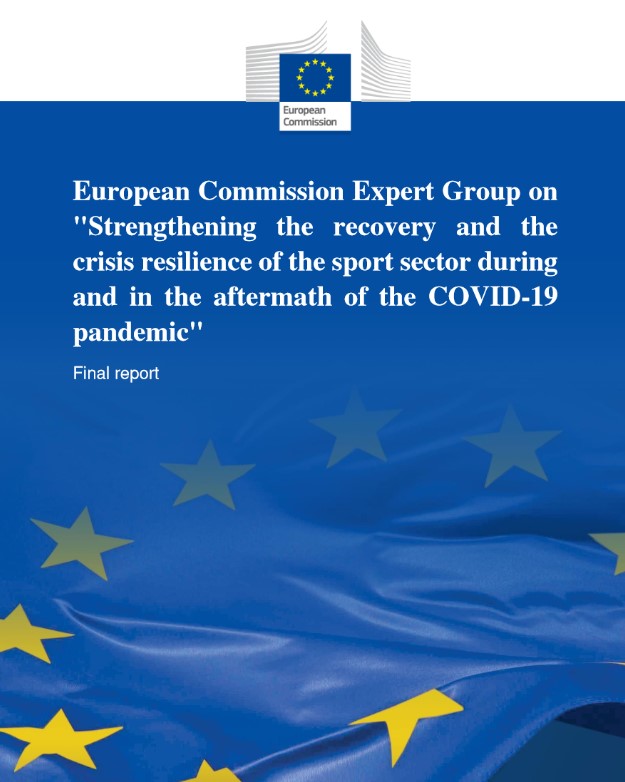Final report
This report was published in 2024 and originates from an Expert Group convened by the European Commission in 2021 to tackle the challenges faced by the sports sector during and after the COVID-19 pandemic. The group was tasked with examining the pandemic’s lasting effects on both elite and grassroots sports, sharing best practices, and formulating recovery recommendations. As their work progressed, additional political crises and rising energy costs further compounded the challenges for sport, prompting the group to address wider issues including environmental sustainability, climate change, and governance.
The COVID-19 pandemic had a significant impact on the sports sector across EU Member States, with both immediate and long-term consequences. These effects were felt across a range of stakeholders, including policymakers, sport organisations and associated industries, athletes and professionals, as well as the general public. The key impacts and responses for each group are summarised below:
Sport Policymakers:
- Policymakers were tasked with balancing health risks against social and economic concerns. Lockdowns resulted in the cancellation of events, the closure of facilities, and a sharp decline in physical activity levels.
- The European Council recognised the strain on the sector and called for measures to alleviate its impact. EU Member States engaged in regular exchanges regarding COVID-19 policies in sport.
- While exemptions were made in some cases to allow elite athletes to continue training and competing, other sports facilities were repurposed for public health needs. The crisis underscored the urgent necessity of supporting grassroots sports and their infrastructure.
- Financial support was provided at both EU and national levels. The EU’s Recovery and Resilience Facility (RRF) allocated €2.2 billion to sport initiatives across 21 Member States. National responses varied; for example, Estonia utilised its Sports Register data to allocate funds effectively.
The report highlights the enduring challenges posed by the pandemic while placing them in the broader context of other ongoing crises, underscoring the need for resilience and sustainability within the sports sector.

For more information:
European Commission: Directorate-General for Education, Youth, Sport and Culture, European Commission Expert Group on “Strengthening the recovery and the crisis resilience of the sport sector during and in the aftermath of the COVID-19 pandemic” – Final report, Publications Office of the European Union, 2024, https://data.europa.eu/doi/10.2766/045032
